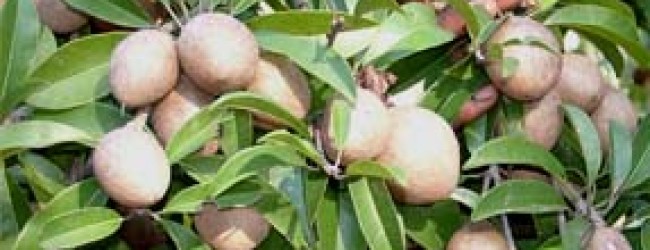Mrs Nagalakshmi’s Sapota Trees

Mrs Nagalakshmi set aside one acre of her five acre plot in 2007 to grow fruit trees and, with the help of SCAD’s tree planting staff, she planted trees for the next three years. Initially she planted 50 Sapota trees and has subsequently added a further 55 trees comprising of Jamun, Tamarind and Guava. The Sapota trees have just started to fruit and she has sold the crop for £200 (RS 15,000).
To supplement her income before the fruit trees started to bear fruit, SCAD staff convinced her to plant Sorghum as an inter crop and provided her with some subsidised seed. Sorghum is easy to grow and can survive the dry and hot conditions of the Vilatakulam area that she lives in with minimum attention. This has proved a great success as she uses the Sorghum for fodder for her cattle and has started to sell Sorghum seeds to other farmers in her locality This seed selling combined with the money she has saved by not having to buy as much fodder for her animals is providing her with a good return from her land.
Mrs Nagalakshmi is very happy with the outcome especially as, in addition to the extra income, she now finds she does not have to spend as much time ploughing, tilling, weeding and watering. As a result of her experiences she now plans to convert more of her land to tree planting and Sorghum production instead of the cotton and green chillies that she has traditionally grown.
The species of trees are carefully selected bearing in mind the soil conditions and SCAD insists on at least five varieties of trees to spread the risk of failure. Mostly grafted one or two year old fruit trees are recommended. These saplings are twice as expensive as non grafted varieties but they fruit much more quickly and can start to yield after three years. This is a crucial factor in persuading farmers to set aside land for trees.
If you would like to help us support farmers in Tamil Nadu you can donate here.

